Dr. Arti Yardi, an avowed environmental activist and DST-INSPIRE Faculty Fellow at IIITH’s Signal Processing and Communications Research Center (SPCRC) talks about her twin passions in error correcting codes and ecological protection. This is what makes her tick!
Somewhere in the innards of the historical city of Aurangabad once lived a youngster who blitzed her way through school and engineering college, topping her class through each fine year. Her journey was deeply inspired by her family background and upbringing that emphasized hard work and erudition, within the framework of mindful living. Her youth would be spent in the shadow of the hoary tourist destinations of Ajanta and Ellora, assisting her father in the restorations of water bodies and improving the ecosystem for migratory birds in the local lakes and dams.
This is the DNA and background that shaped Arti Dilip Yardi who joined IIIT Hyderabad earlier this year.
DST Faculty Fellow’s tryst with IIIT
Arti Yardi’s primary research is in the domain of information and coding theory. “For past 3 years I have worked with IIIT Bangalore and I recently joined IIIT Hyderabad”, explains the DST INSPIRE fellow whose MHRD grant allows her to be associated with any university in India. “My field of specialization is error correcting codes. We map the challenges encountered in a communication system. For instance, in a phone conversation over a wireless channel, our codes will help to rectify errors that might have occurred during the transmission”. Her recent research has been exploring its applicability in military communication.
“My role in IIITH is equivalent to assistant faculty and I teach a course on information theory for masters and senior undergraduate students”, says Arti who is working on problems related to reverse engineering of communication systems, covert communication, analyzing spatially-coupled codes and more recently, ML applications in communication.
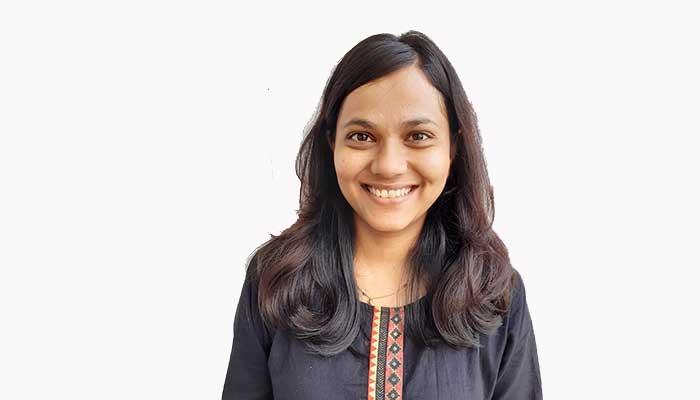
The HSC merit rank holder from Sharda Mandir Girls school would graduate B.Tech in Electronics and telecommunication from the government college in Aurangabad, with top honors. She joined Larsen & Toubro in Mumbai as a design engineer at the petroleum dispensing pump (PDP) unit of electrical business group (EBG). She worked for two years on embedded software to develop internet-enabled high end petrol pumps, the likes of which had not yet been set up in India. “We filed several patents in the domain”, she remarks.
“At that time, I lived directly across the main gate of IIT Bombay and as fate would have it, one day I crossed the road and joined the Institute”, she recalls with a smile. Serendipitously, she would meet Tejas Bodas, her classmate and future husband who was also pursuing a joint M.Tech and Ph.D program from the Dept. of Electrical Engineering. “It was a lovely time and we soon got married but continued to live in our respective hostels.”
“I was working with one particular family of error correction in the current 5G and 6G wireless that is popularly used in mobiles today”, says Arti who received the CIMI Post-Doctoral Fellowship from the University of Toulouse. “We were lucky and got to work together again for our Post-doctoral work at Toulouse. We were in France for 2 years and toured almost all of Europe except for a few Scandinavian countries. We were clocking one trip per month, exploring the continent, visiting their small villages and trying out cuisines to imbibe their true essence”.
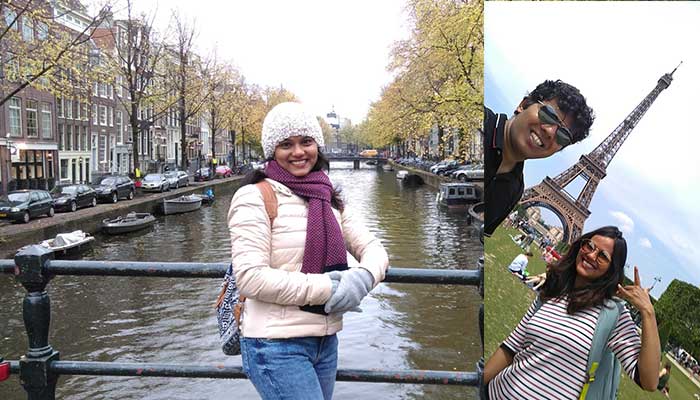
The young researchers returned to India and joined IIIT Bangalore. Arti had received the DST Inspire fellowship that would allow the young researcher a certain degree of freedom to work on developing a virtual lab for rural students to conduct experiments online. Concurrently, she taught courses in Information theory, pattern recognition in neural networks, digital communication and mathematics for machine learning.
Among the conferences, her publications at ISIT and ITW are particularly noteworthy, observes Arti who has 9 conference publications and 5 journal publications in her expanding portfolio. Some prominent publications that stand out are the papers presented at ISIT-2018 at Vail, USA and papers in applicable algebra presented at IEEE Transactions on Communications (TCOM) conferences. This was the spinoff of exciting work on the properties on cyclic codes, that she had started with her Ph.D advisor Saravanan Vijayakumaran.
When the pandemic lockdowns were announced in 2020, she had just returned to work after her maternity leave. “It was a good stretch for us since we could balance our personal life and work life”, says the researcher.
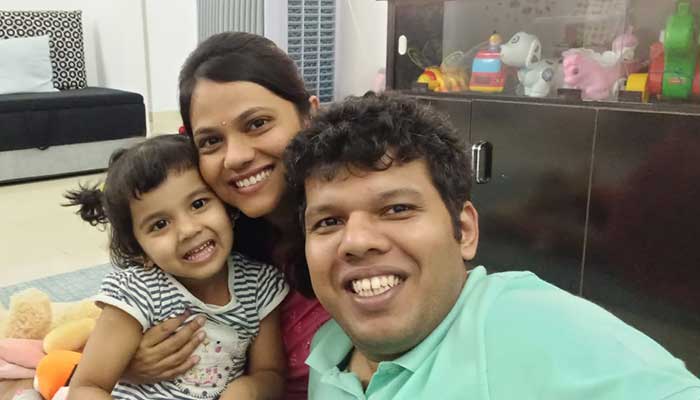
“When Tejas got a position in IIITH’s Computer Services Group, I had the opportunity to join SPCRC. There has been a shift in my research focus and I am now trying to apply machine learning and deep learning techniques to my problem,” reveals Arti who has been working extensively with Prof. Lalitha Vadlamani on an MHRD project for developing a ‘virtual lab on error correcting codes’ and with Prof. Sachin Chaudhuri and Prof. Prasad Krishnan at the Center. “What I love most about IIITH is that the faculty is like-minded. One campus memory that stands out happened shortly after we had moved to campus housing in March 2022. The entire campus was celebrating Holi with gusto and what took me by surprise was that the Director of the Institute was actually leading the celebration. It is this kind of camaraderie that impressed me the most”, she observes. In her spare time, the Game of Thrones fan does cardio walks and back-strengthening exercises to keep fit or indulges in fun activities with Anusha, their 3-year-old daughter.
Role models manifested in all shapes and sizes
Growing up in a small town allowed Arti to pursue hobbies like Indian classical music and badminton. “I was a class-topper throughout but we still had time for extracurricular activities like debate competitions and organizing school events”, she comments. “Both my parents received their Ph.Ds well into their fifties. My mother, a Sanskrit teacher, did her Ph.D in Sanskrit to understand the Upanishads better. She would narrate stories from our spiritual texts and in my childhood I had even memorized some adhyayas from the Bhagavad Gita”.
Her grandparents set a high standard for her, she believes. She grew up, listening to her grandfather study the scriptures, well after his retirement. “My grandmother was very particular about tidiness and unknowingly, I picked up those traits”. The scholar considers herself fortunate to have had a wonderful older sister, good friends and positive influences like her high school teachers who instilled the love of Maths in her and introduced her young mind to the richness of Marathi literature. “I owe a lot to my Ph.D advisor Saravanan Vijaykumar thanks to whom, I got to work on exciting problems that are relevant to modern wireless systems as well as Prof. Animesh Kumar, who now works for Twitter Canada”, she comments. She has worked with Prof. Charly Poulliat (National Polytechnic Institute of Toulouse) and Prof. Iryna Andriyanova of ETIS/ENSEA, a famous Paris-based researcher, on designing spatially-coupled low-density parity-check codes.
A bird’s eye view helps her chase her dreams
Arti Yardi’s father was a government official who ran an NGO and had devoted his life to environment-related activities. Such was his passion that he completed his Ph.D in Ornithology in his sixties. 60 kilometers away from Aurangabad, the back waters of the Jayakwadi Dam is home to lakhs of migratory birds and through his efforts, it is now declared as a bird sanctuary. “My father was also closely associated with the authorities to revive the Salim Ali lake, that was home to several species of birds and I used to enjoy the lake cleanups efforts”, she says wistfully. “I remember distributing pamphlets to houses abutting the lake, convincing them not to throw garbage. Today, it is one of the most beautiful lakes in the city”.
“While in IIT Bombay, I had the good fortune of meeting Anna Hazare during a rural tour of Ralegaon Siddhi and actually got to witness his work. His village was once a drought-stricken wasteland but thanks to his community-led efforts, it is now a green village with abundance of water”.
Happiness is when, what you ‘think’, ‘say’ and ‘do’, are in harmony is a famous quote attributed to Mahatma Gandhi, that she came upon in a small museum at the base of the Statue of Liberty. “I really liked that line because in my opinion, when you work on a problem, your mind needs to be in harmony with it. I want to contribute to environment protection, especially with respect to garbage segregation. I think it’s the need of the hour and if we don’t do it now, then in a hundred years, the earth would be unlivable. These are the two things that I’m really passionate about”, she discloses. “In fact, in IIITH, there are many like-minded people that I’ve found, whose ideals are exactly aligned with the way I think and I hope I’ll get to work with them in the near future”.
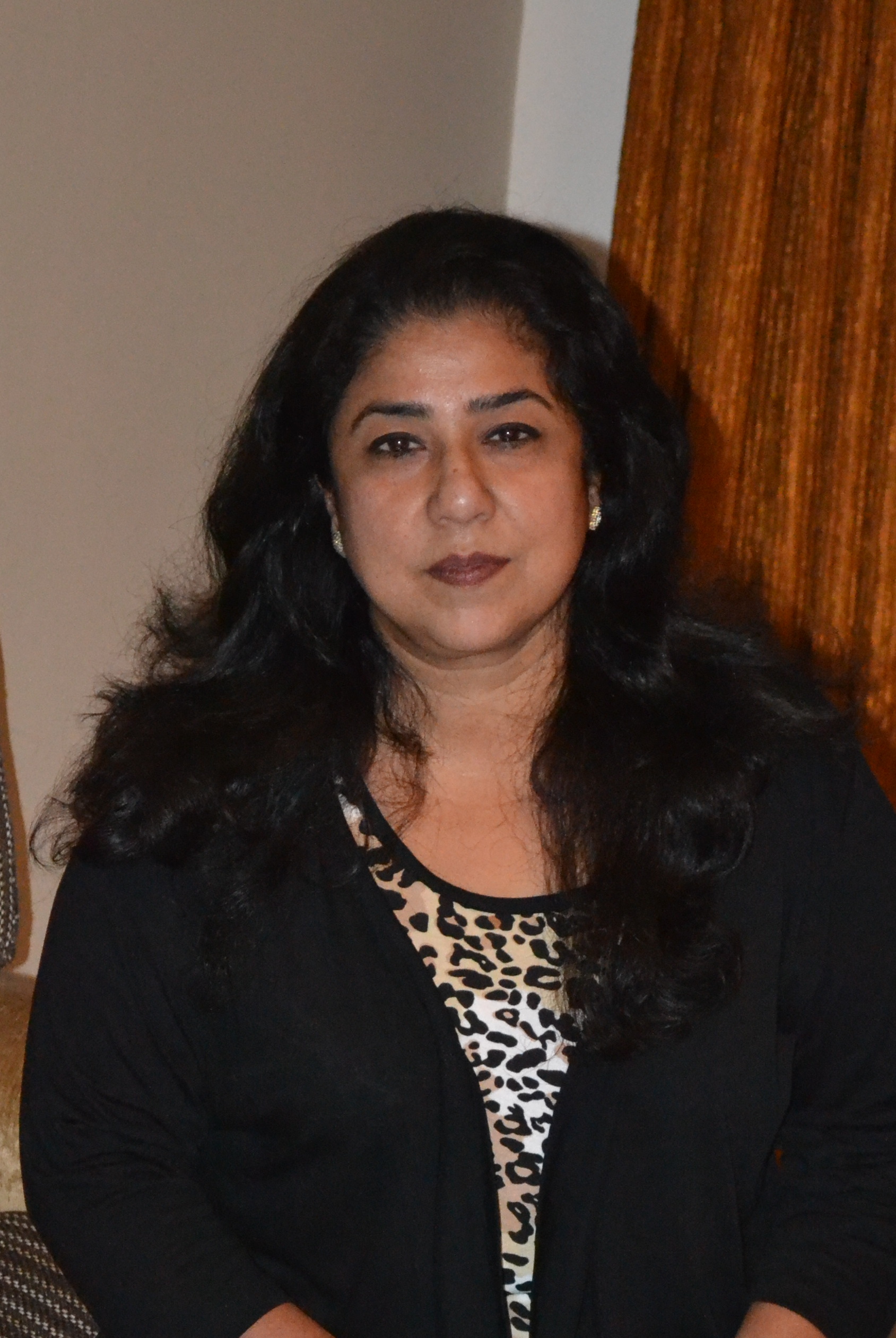
Deepa Shailendra is a freelance writer for interior design publications; an irreverent blogger, consultant editor and author of two coffee table books. A social entrepreneur who believes that we are the harbingers of the transformation and can bring the change to better our world.

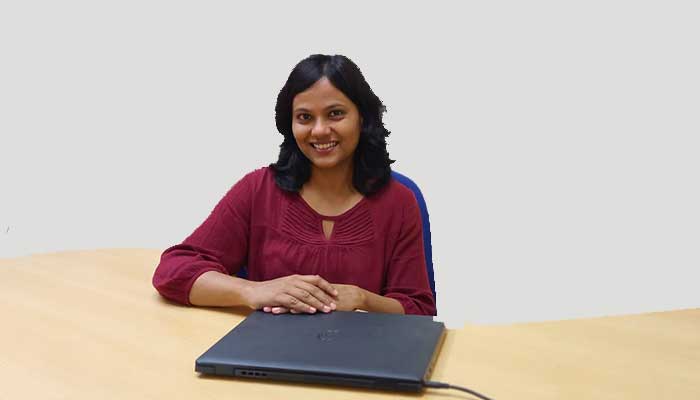
Next post